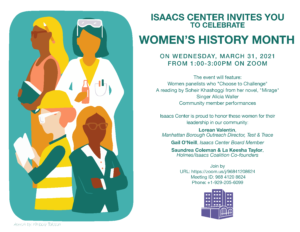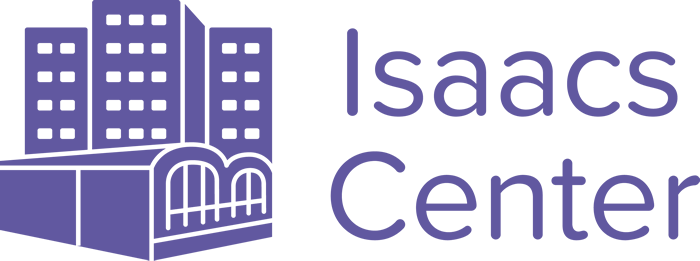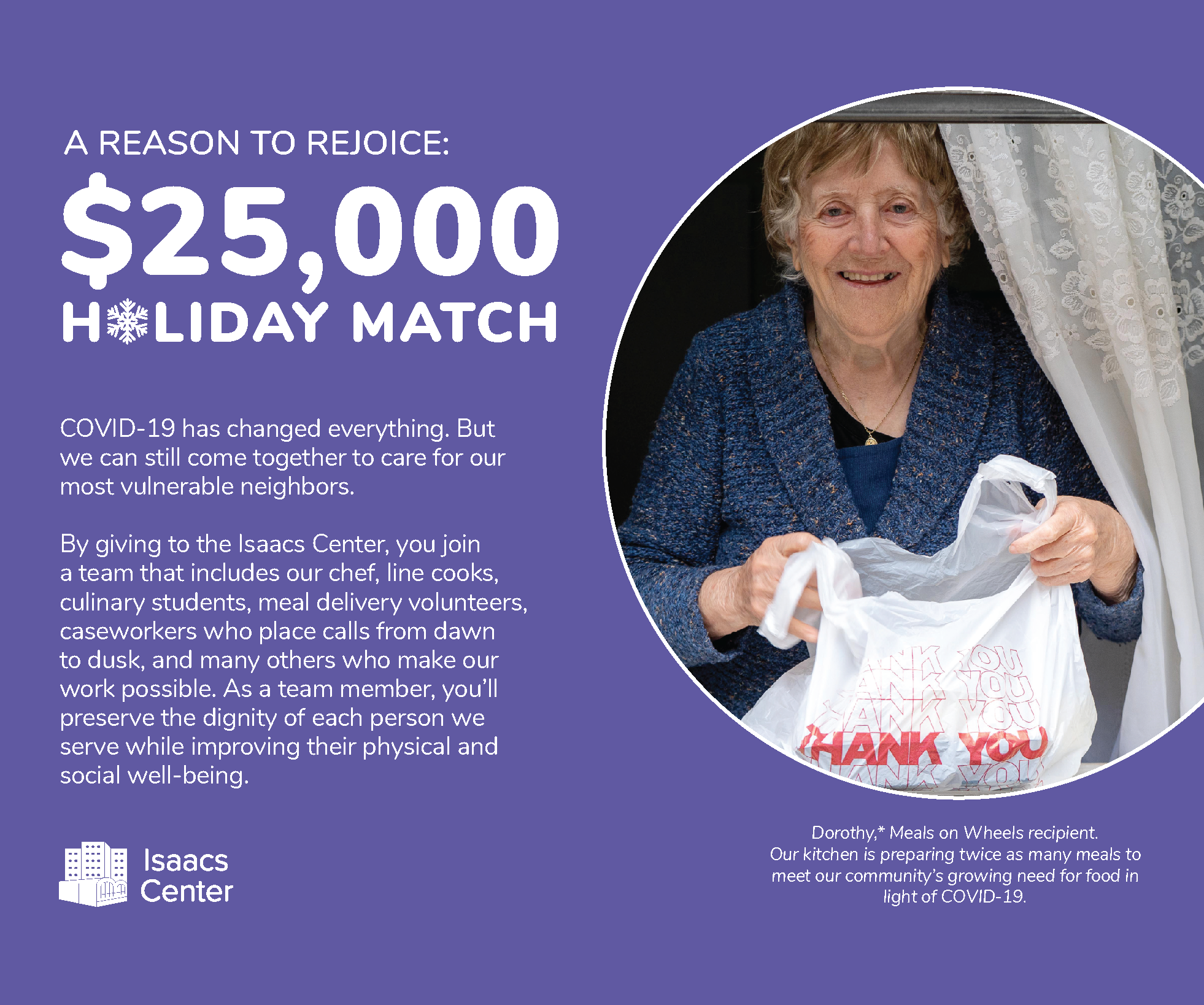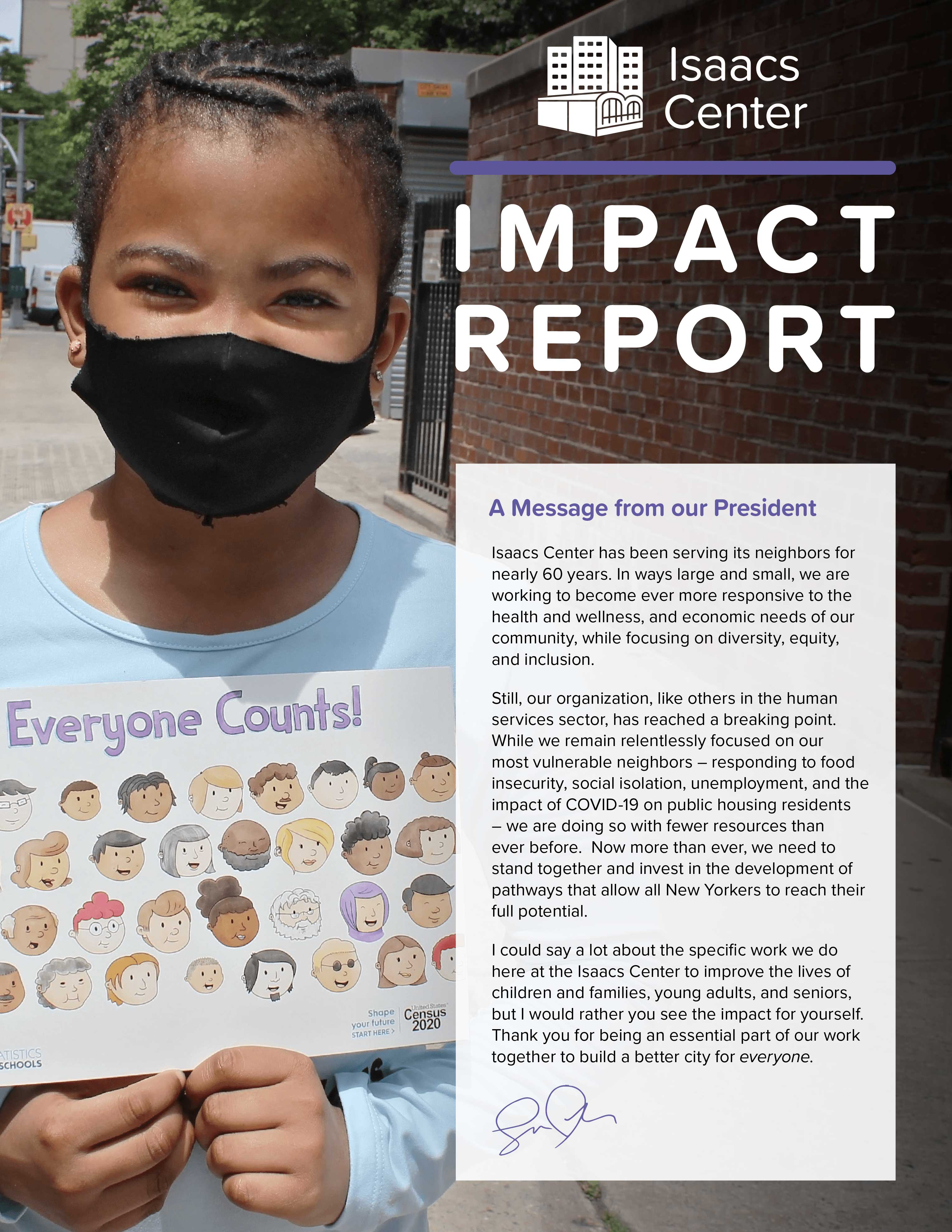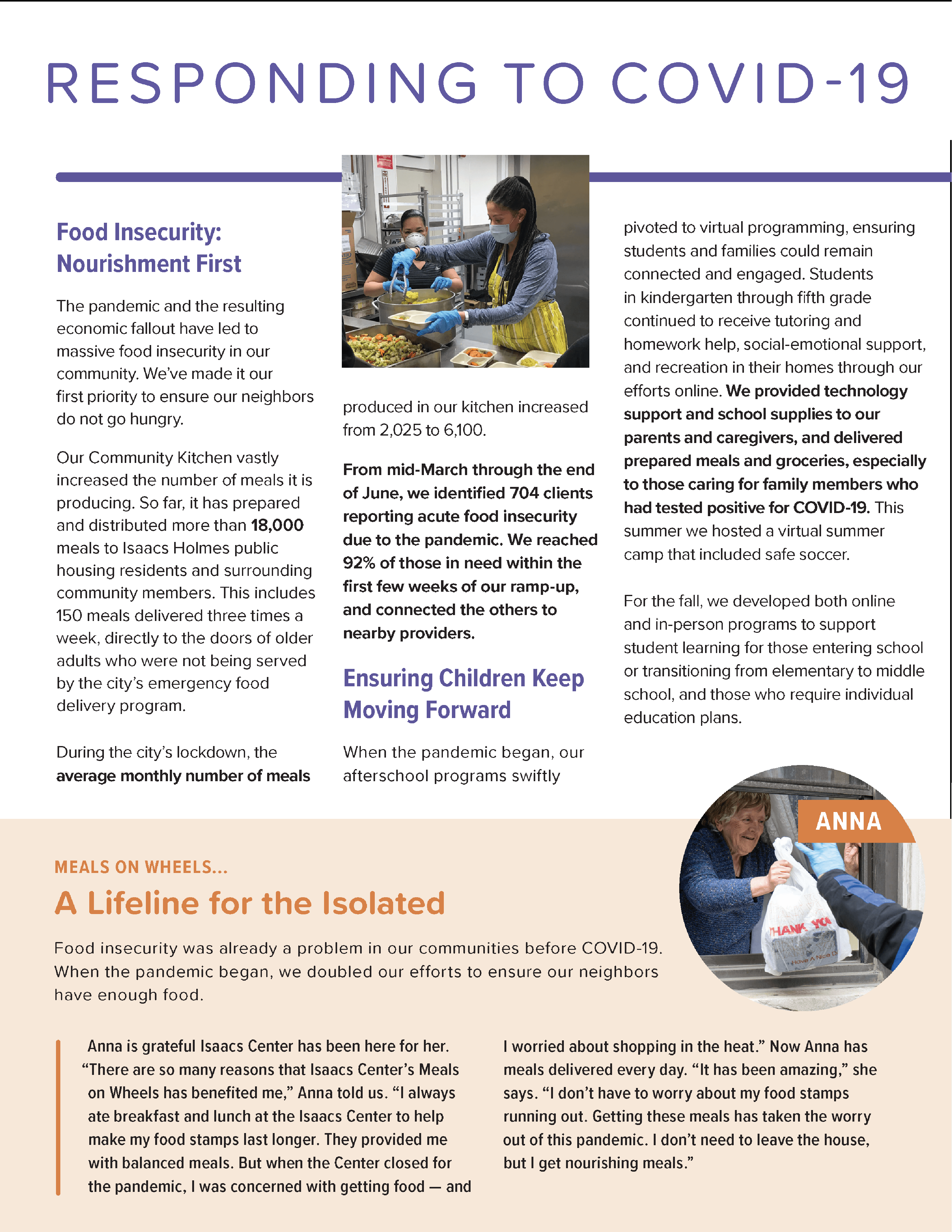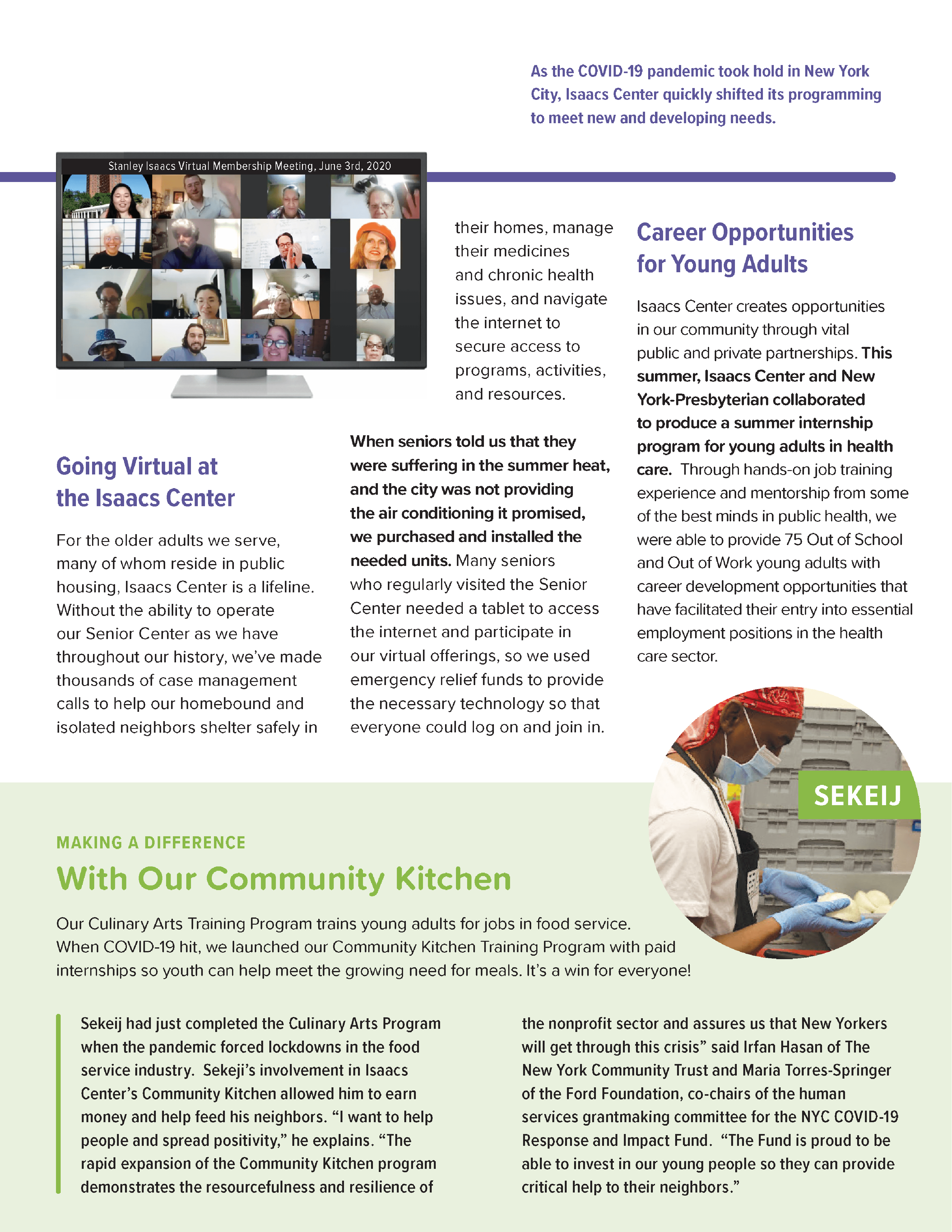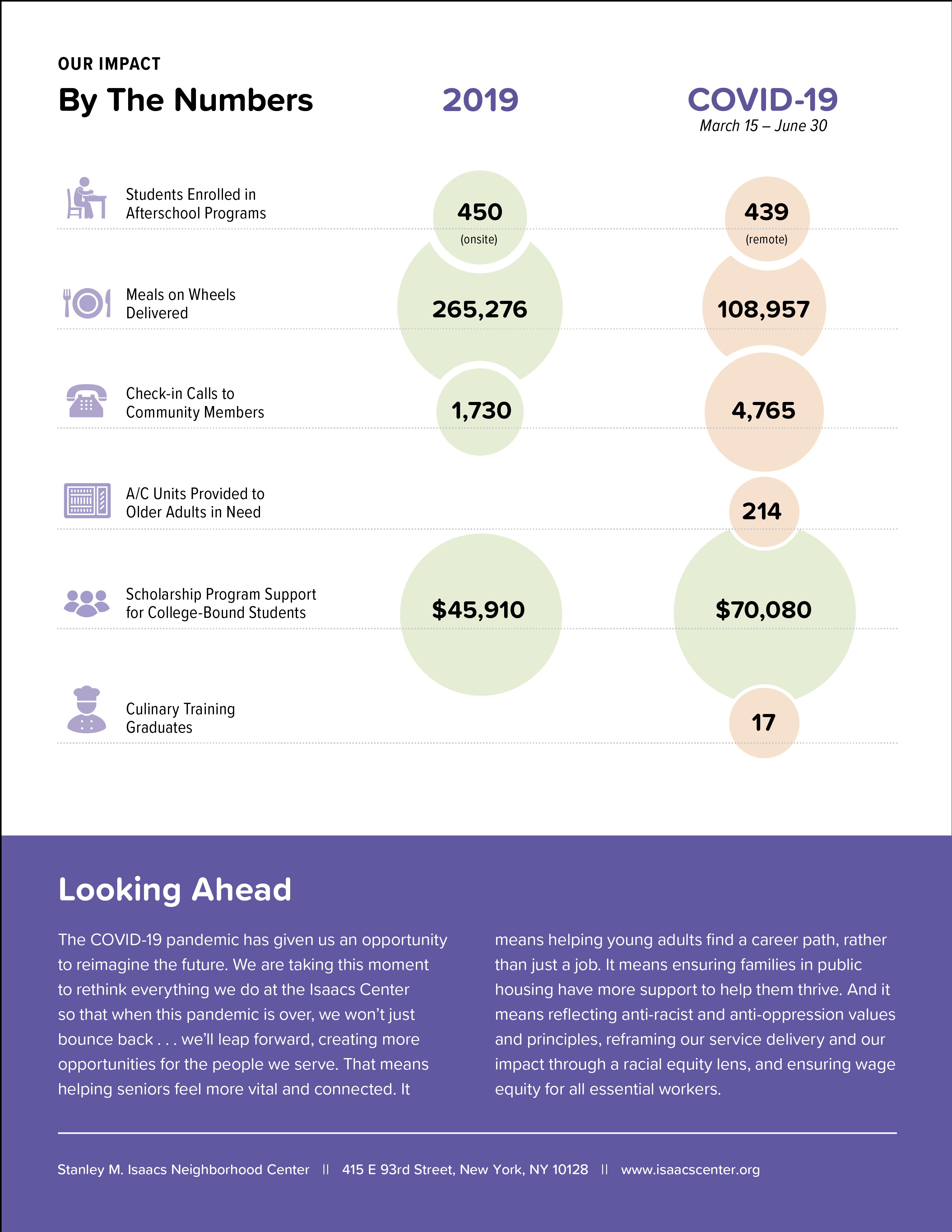The Stanley M. Isaacs Neighborhood Center (Isaacs Center) has doubled meal production at its Community Kitchen in response to the growing needs of NYCHA residents and older adults impacted by the COVID-19 health crisis. The expansion was centered around the provision of internship opportunities for young adults, enrolled in the Center’s Culinary Arts Training Program, living with significant challenges such as homelessness, mental health issues, justice involvement, and foster care system history.
For the first time in the Isaacs Center’s history, the kitchen is operating with two shifts of cooking teams made up of chefs, kitchen aids, and culinary students. The morning team produces 800 meals per week for delivery to homebound and medically fragile older adults, while the afternoon shift produces 1,600 meals per week for community residents in and around the Holmes Towers and Isaacs Houses NYCHA developments, provided through on-site distributions.
The Isaacs Center has seen food insecurity in the neighborhood increase dramatically since the start of the COVID-19 crisis, receiving 9 times its usual volume of requests for food assistance.
“Food preparation and delivery has always been a central part of our work here at the Isaacs Center,” said Gregory J. Morris, the Issacs Center’s President & Executive Director. “By expanding our operations and launching a community kitchen program, we are more than doubling our meal production at this critical time to meet the needs of our community, while increasing our capacity to tailor our menus for those with dietary restrictions and creating a training space for young adults interested in a career in culinary arts.”
The expansion was centered around the provision of internship opportunities for young adults enrolled in the Center’s Culinary Arts Training Program and living with significant challenges such as homelessness, mental health issues, justice involvement, and foster care system history. The expansion of the Community Kitchen has allowed the Center to address rapidly increasing neighborhood hunger and provide critical job training for particularly vulnerable youth, who would otherwise be without necessary pathways to economic security and supportive services.
“I had been working in catering, but I wanted to learn more about the work inside the kitchen, so I started the Isaacs Center’s Culinary Arts training program,” commented Saraii Isabell, an Isaacs Center Culinary Arts Intern. “Because of COVID-19, I lost my catering job, so it’s a good thing I made this decision. This internship in the community kitchen gives me a job and allows me to help people in need, which makes me really happy.”
Support for the expansion has been strong and widespread from the Isaacs Center’s public and private community partners alike.
“The rapid expansion of the Community Kitchen program demonstrates the resourcefulness and resiliency of the nonprofit sector and assures us that New Yorkers will get through this crisis” said Irfan Hasan of The New York Community Trust and Maria Torres-Springer of the Ford Foundation, co-chairs of the human services grantmaking committee for the NYC COVIC-19 Response and Impact Fund. “The Fund is proud to be able to invest in our young people so they can provide critical help to their neighbors.”
